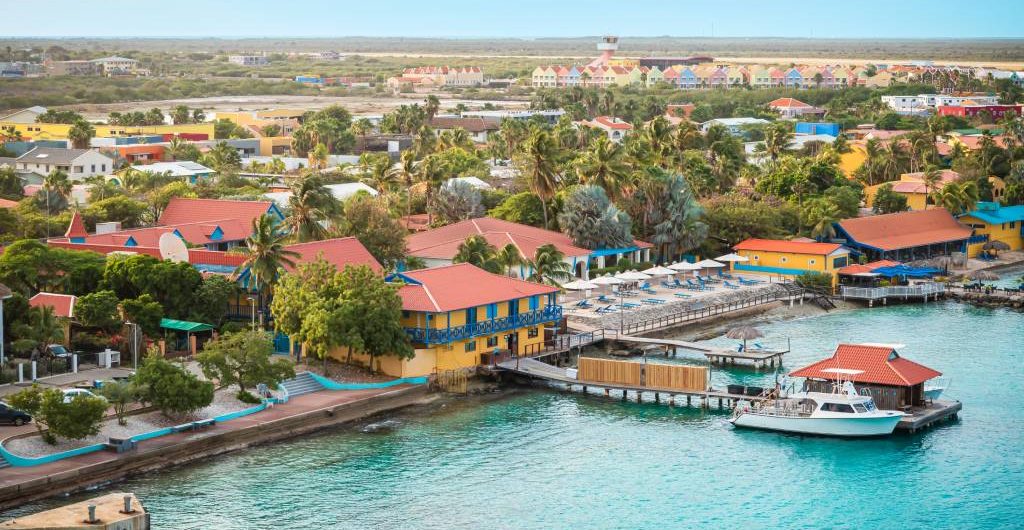
Location and Geography
Bonaire is a picturesque island located in the southern Caribbean Sea. It is part of the Dutch Caribbean, situated in the Leeward Antilles. Bonaire is renowned for its stunning natural beauty, which includes pristine beaches, crystal-clear waters, and an underwater wonderland of coral reefs. It is one of the five islands that make up the Caribbean Netherlands, alongside Saba, Sint Eustatius, Aruba, and Curaçao.
Historical Background
The history of Bonaire is marked by a blend of indigenous culture and European colonial influences. Originally inhabited by the indigenous Caiquetio people, it was colonized by the Spanish in the early 16th century, later falling under Dutch control. The island has a rich history tied to salt production, fishing, and, more recently, tourism.
Demographics Bonaire has a diverse population, with a mix of native Bonairians, Dutch expatriates, and immigrants from other Caribbean nations. The official languages are Dutch and Papiamento, although English and Spanish are also commonly spoken. The majority of the population is of Afro-Caribbean descent, contributing to the island’s vibrant culture.
Natural Features of Bonaire
Coral Reefs and Marine Life Bonaire is world-famous for its thriving coral reefs, which are part of the Bonaire National Marine Park. These reefs provide a home to a diverse range of marine species, making it a premier destination for scuba diving and snorkeling enthusiasts. The island’s commitment to marine conservation ensures that these natural wonders are well-preserved.
National Parks and Reserves Apart from its marine parks, Bonaire is home to stunning terrestrial landscapes, including Washington Slagbaai National Park. This park offers visitors the chance to explore the island’s rugged terrain, hike its trails, and observe native flora and fauna.
Climate Bonaire enjoys a warm tropical climate year-round, with an average temperature of around 82°F (28°C). The island experiences a dry season from January to September, making it an ideal destination for those seeking sunny skies and warm waters.
Culture and Society
Languages Spoken Dutch and Papiamento are the official languages of Bonaire. However, English and Spanish are widely understood and spoken, particularly in the tourism industry.
Local Cuisine The island’s cuisine is a delightful fusion of Caribbean and Dutch flavors. Fresh seafood, including lionfish and conch, is often featured in dishes. Local specialties like goat stew and karkó (conch) salad provide a taste of Bonaire’s unique culinary traditions.
Festivals and Traditions Bonaire celebrates various cultural festivals, including Carnival, which is a lively and colorful event featuring music, dance, and elaborate costumes. Traditional dance forms like the “Simadan” and “Bari” are also integral to the island’s cultural heritage.
Tourism and Attractions
Diving and Snorkeling Bonaire is consistently rated as one of the world’s top diving destinations. Its pristine coral reefs are easily accessible from the shore, making it an excellent spot for divers of all levels. Snorkelers can also enjoy the vibrant underwater life.
Beaches and Water Activities The island boasts numerous beautiful beaches, including Sorobon Beach and Te Amo Beach. Visitors can indulge in water sports such as windsurfing, kiteboarding, and sailing.
Historical Sites Bonaire preserves its historical heritage through sites like the salt pans, slave huts, and the historic capital, Kralendijk. These sites offer a glimpse into the island’s past.
Other Tourist Attractions Tourists can explore attractions like the Donkey Sanctuary, where rescued donkeys roam freely, and the Flamingo Sanctuary, home to hundreds of pink flamingos.
Economy and Industry
Tourism Sector Tourism is a significant driver of Bonaire’s economy. The island’s commitment to sustainable tourism has helped it attract visitors seeking an eco-friendly vacation experience.
Fishing Industry Fishing, particularly the catch of lobster and conch, contributes to the island’s economy, with an emphasis on sustainable practices to protect marine resources.
Agriculture While limited by the arid climate, Bonaire engages in agriculture, producing fruits, vegetables, and aloe vera.
Renewable Energy Initiatives Bonaire has made strides in renewable energy, with a substantial portion of its electricity generated by wind and solar power.
Governance and Politics
Political Structure Bonaire is a special municipality of the Netherlands, which means it is part of the Kingdom of the Netherlands. It has its local government, but Dutch laws and regulations apply.
Relationship with the Netherlands The relationship between Bonaire and the Netherlands involves financial and administrative support, which helps fund infrastructure development and public services.
Environmental Policies Bonaire is committed to environmental conservation, implementing policies to protect its natural resources, including strict regulations on marine activities and waste management.
Challenges and Conservation Efforts
Environmental Concerns The island faces challenges related to coral bleaching, invasive species like lionfish, and plastic pollution. Conservation efforts aim to address these issues.
Conservation Initiatives Bonaire has established marine parks, strict fishing regulations, and initiatives to promote eco-friendly practices among tourists and locals.
Sustainable Tourism Practices Bonaire’s sustainable tourism practices aim to strike a balance between attracting visitors and preserving the island’s fragile ecosystems.
Future Outlook
Economic Development The island continues to focus on sustainable tourism and renewable energy to ensure economic growth while safeguarding its natural resources.
Environmental Conservation Bonaire remains committed to protecting its coral reefs, marine life, and terrestrial ecosystems through ongoing conservation efforts.
Cultural Preservation Efforts to preserve and promote Bonairian culture and traditions are expected to continue, enriching the island’s cultural tapestry.